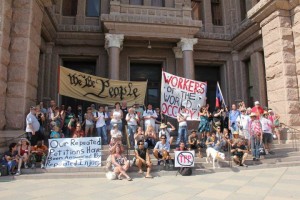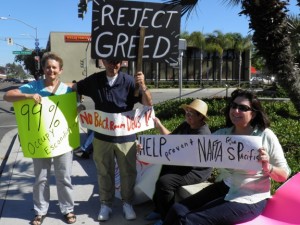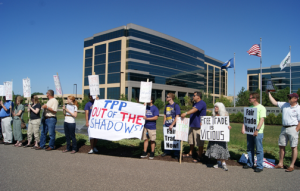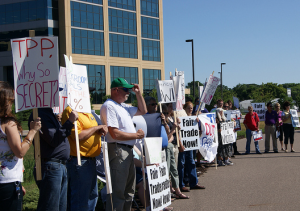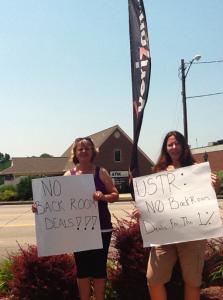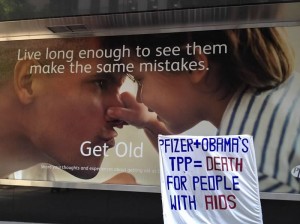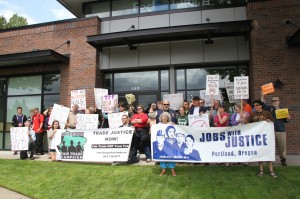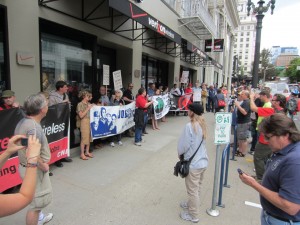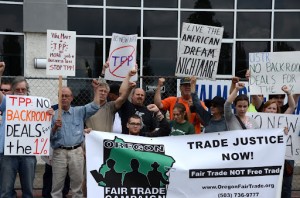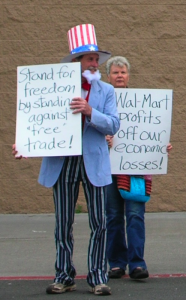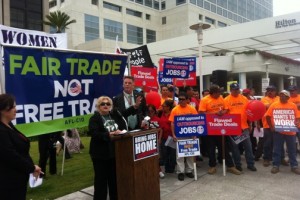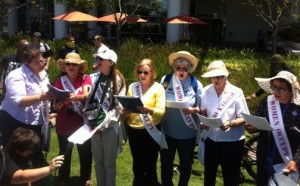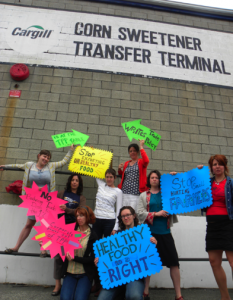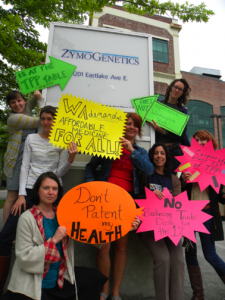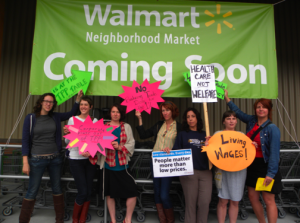Photos from the TPP National Days of Action (July 2012)
Augusta, Maine
Austin, Tex.
Beaver, Penn.
Escondido, Calif.
Hopkins, Minn.
Johnstown, Penn.
New York City, N.Y.
Portland, Ore.
Salem, Ore.
San Diego, Calif.
Seattle, Wash.
About the National Days of Action on the Trans-Pacific Partnership (TPP)
In 2012, trade negotiators and corporate lobbyists from throughout the Pacific Rim will met in San Diego over the week of July 4th for a closed-doors trade summit aimed at rushing the secretive Trans-Pacific Partnership (TPP) towards completion. U.S. negotiators have granted approximately 600 corporate lobbyists access to the TPP texts, but have refused to tell the public what they are proposing in our names. The Days of Action were designed to drag the TPP out of the shadows and help prevent a major corporate power grab.
While labor, environmental, consumer, immigrant rights, family farm and Occupy activists demonstrate in San Diego, you can help join in calling out the TPP’s back-room deal making by taking the following action:
Step 1: Identify local branch one of the TPP’s “cleared corporate advisors.” Popular choices include Wal-Mart, Chevron, Halliburton, FedEx, Verizon, Cargill and Caterpillar.
Step 2: Get a group of people together to visit that office or store at a specific date and time between Sunday, July 1 and Saturday, July 7. It doesn’t matter if it’s just you and a friend; a contingent from your Central Labor Council; or an entire Occupy chapter. The key to success is simply having people participate in as many different places as possible. If you’d like to spread the word about your action, and potentially have others join you, please post information about your visit here by Thursday, June 28 and we will list it on this website and circulate it via email.
Step 3: Make one or more signs that say the following: “USTR: NO BACK ROOM DEALS FOR THE 1%!” Have your group take pictures with that sign during your visit (trying to capture the corporation in the background). Email the best photos to tppaction@citizenstrade.org by Saturday, July 7 and we’ll include them in a collage delivered to trade negotiators during a creative action in the final days of the San Diego negotiations.
The Trans-Pacific Partnership (TPP) is poised to become the largest free trade agreement ever. The massive trade and investment pact is currently being negotiated behind-closed-doors between the United States and countries throughout the Pacific Rim. Current negotiating countries include the United States, Australia, Brunei, Chile, Malaysia, New Zealand, Peru, Singapore and Vietnam, but the TPP is also intended as a “docking agreement” that all Pacific Rim nations will join over time. Canada, Japan and Mexico are already pressing to do so. Powerful corporate interests are pushing for the TPP to:
- Offshore good-paying jobs to low-wage nations and undercut working conditions globally
- Create new tools for attacking environmental and consumer safety standards
- Expand the deregulation of banks, hedge funds and insurance companies
- Further concentrate global food supplies, displacing family farmers and subjecting consumers to wild price fluctuations
- Institute longer patents that restrict access to affordable, generic medications
- Impose IP restrictions that choke online speech, innovation, privacy and digital rights
Instead of being debated out in the open, the TPP has thus far been negotiated in the shadows. Approximately 600 corporate lobbyists have been given access to the TPP negotiating texts. A handful of civil society groups also have access to the texts, but they are vastly outnumbered and are legally prevented from sharing what they’ve read. Meanwhile, the people whose lives will be affected by the TPP have been barred from even reviewing what U.S. negotiators have proposed in our names.
The thirteenth major round of TPP negotiations — and perhaps one of the last — is taking place in San Diego from July 2 to 10. There will be a variety of actions in San Diego at that time — but people of conscience throughout the country are needed to help ensure that the world isn’t saddled with another back-room trade deal that benefits the 1% at the expense of the global majority.


